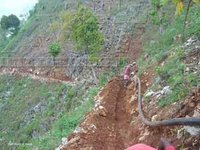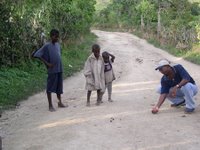
To many observers, investments in infrastructures can be seen as viable catalysts to reduce disparities and pockets of poverty in some regions.
As a matter of fact, addressing the problem of low-access to water supply and sanitation for some countries goes a long way within time-bound objectives and indicators for international development seen in the Millennium Development Goals (MDGs), where the attainments of such targets imply the expansion of cumulative investments, and the mobilization of international sources to cover those requirements.
And for the viability of collaborative activities, the integration of a harmonized mechanism is a pre-requisite to convey synchronized responses in order to meet these challenges.
In  strengthening of operational and financial capacity through cost-recovery mechanisms.
strengthening of operational and financial capacity through cost-recovery mechanisms.
This could be an interesting framework, where the implementation of such an endeavor will highlight the necessity to streamline a national coordination process, and at the same time provide monitoring and evaluation (M&E) with additional foot-prints to assess the country’s performance in terms of poverty reduction goals and results when gauging its institutional capacity to harness financing, infrastructure development and stakeholders’ involvement.








